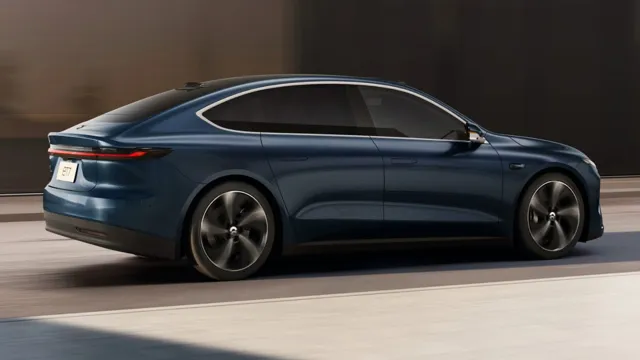Revolutionizing the Future: Breakthroughs in Electric Car Battery Research
Electric car batteries are at the forefront of a technological revolution in the automotive industry. With rising concerns about the adverse environmental effects of gasoline-powered vehicles, automakers and researchers alike are doubling down on efforts to create sustainable and efficient battery technologies for electric cars. Electric car battery research has come a long way, with significant strides being made in improving battery life, reducing charging times, and lowering costs.
The potential benefits of these advancements can have far-reaching implications, including reducing carbon emissions and improving air quality. In this blog, we’ll explore the latest trends in electric car battery research and analyze how these advances are shaping the future of transportation.
Overview of Electric Car Battery Technology
Electric car battery research is an exciting field that is rapidly evolving. Engineers and scientists are constantly innovating new technology and materials to create batteries that are more energy-dense and longer-lasting. Lithium-ion batteries are currently the most popular battery technology used in electric vehicles, but other technologies, such as solid-state batteries, are also being developed and researched.
Solid-state batteries have the potential to be even more energy-dense and safer than lithium-ion batteries. Additionally, some researchers are investigating the use of alternative materials, such as sodium and magnesium, as potential battery components. Overall, the development of electric car battery technology is critical for achieving sustainable transportation and reducing our reliance on fossil fuels.
Current State of Electric Car Battery Technology
Electric car battery technology has come a long way in recent years, but there is still much room for advancement. One of the main challenges with electric car batteries is achieving a balance between energy density and safety. Current batteries typically use lithium-ion technology, which provides a high energy density and long lifespan.
However, they are also prone to overheating and potentially dangerous thermal runaway events. Researchers are working on developing new battery chemistries that can provide similar energy storage capacities but with improved safety features. For example, solid-state batteries are being developed that use a nonflammable electrolyte, eliminating the risk of fires.
Overall, electric car battery technology is steadily advancing, and we can expect to see even more significant developments in the coming years.
Pros and Cons of Lithium-Ion Batteries
When it comes to electric car battery technology, there are a few options to choose from, but the most common battery type is the lithium-ion (Li-ion) battery. Li-ion batteries are favored due to their ability to hold a charge for extended periods, their high-energy density, and their relatively low weight. However, they also have their drawbacks, including a limited lifespan, vulnerability to temperature extremes, and their potential risk of overheating and even catching fire.
Despite these concerns, manufacturers continue to invest in researching and improving Li-ion battery technology to make electric cars even more efficient and affordable.
Advancements in Electric Car Battery Technology
Electric car battery research has been advancing rapidly in recent years, with many companies investing in the development of more efficient and sustainable batteries. One notable development is the use of solid-state batteries, which replace the liquid electrolyte used in traditional lithium-ion batteries with a solid material. Solid-state batteries have the potential to improve energy density, safety, and lifespan, making them an attractive option for electric vehicles.
Additionally, research is also being done on new materials, such as silicon and lithium-sulfur, which could further improve battery performance. These advancements in electric car battery technology will not only make electric vehicles more practical and affordable for consumers but will also pave the way for a more sustainable transportation future.
Solid-State Batteries: The Future of Electric Cars?
Solid-State Batteries As the world continues to see an increase in the use of electric cars, advances in battery technology are becoming even more significant. Solid-state batteries are one technology many experts believe will play an essential role in the future of electric cars. Unlike traditional lithium-ion batteries, solid-state batteries use a solid material to replace the liquid electrolyte found in today’s batteries.
This advancement has the potential to significantly increase energy density, allowing electric cars to travel further on a single charge. They are also safer, as they eliminate the potential for explosion or fire caused by a liquid electrolyte. While solid-state batteries have been in development for some time, they have yet to make their way into consumer vehicles.
However, with an increasing need for more sustainable energy sources and a greater push towards electric vehicles, it is likely that solid-state batteries will soon become a reality for the everyday consumer.
The Role of Artificial Intelligence in Battery Research
Advancements in electric car battery technology have brought a significant improvement in the performance, efficiency, and longevity of electric vehicles. Artificial intelligence has become a crucial aspect of battery research due to its ability to analyze vast amounts of data and assist in developing improved battery designs. AI algorithms can predict the behavior of various materials under different conditions, allowing researchers to focus on the most promising avenues for research.
Furthermore, AI can assist in optimizing battery performance by adjusting charging patterns to reduce wear and extend battery life. While the development of electric car batteries is a complex field, the integration of AI into the research has opened exciting new possibilities for improving the efficiency and sustainability of electric vehicles. The integration of artificial intelligence in battery technology is a promising development that will undoubtedly help increase the adoption of electric cars as a viable transportation option.
Other Emerging Battery Technologies to Watch
Advancements in electric car battery technology have been revolutionizing the industry, making electric vehicles more efficient, reliable, and cost-effective. While lithium-ion batteries have been the go-to technology for years, other emerging battery technologies are increasingly gaining attention. One of these is solid-state batteries, which use a solid electrolyte instead of a liquid one, providing higher energy density and faster charging times.
Another promising technology is sodium-ion batteries, which are cheaper and more sustainable than lithium-ion ones, making them a great alternative for mass production. Additionally, zinc-air batteries, which use oxygen from the air to generate electricity, are becoming more efficient and durable, making them a suitable option for electric cars. As battery technology continues to advance, it’s exciting to see what new innovations will be introduced to improve electric vehicles’ performance and sustainability.
Impact of Battery Research on the Electric Car Industry
Electric car battery research has had a significant impact on the electric car industry. With the growing demand for electric vehicles, researchers are finding new and innovative ways to improve battery efficiency, lifespan, and charging time. Scientists and engineers are continuously testing new materials, such as lithium-ion and solid-state batteries, to create more advanced and sustainable battery technology.
Furthermore, research in this field has resulted in new and improved battery management systems, which allows electric cars to conserve and manage their energy more effectively. The outcome of these studies is apparent in the market, as more and more electric cars flood the roads, providing a greener and more sustainable means of transportation. With battery research still ongoing, the future looks bright for electric vehicle manufacturers, as they continue to improve and innovate their products.
Cost Reduction and Improved Efficiency
Battery research has revolutionized the electric car industry, enabling significant improvements in cost reduction and efficiency. Advances in battery technology have resulted in increased energy density, reducing the size and weight of batteries while improving their performance. This has led to longer driving ranges for electric cars and reduced charging times, making them a more practical and viable option for consumers.
Additionally, battery research has led to the development of more sustainable and environmentally friendly battery materials, reducing the industry’s impact on the planet. These improvements have resulted in reduced costs for electric cars, making them more accessible to a wider audience. The impact of battery research on the electric car industry has been so significant that it is now considered one of the most important factors driving the industry’s growth and success.
As battery technology continues to improve, we can expect even more significant advances in the cost reduction and efficiency of electric cars.
Expansion of Electric Car Range and Access to Charging Stations
The electric car industry is growing at an unprecedented pace due to the advancements in battery technology. With the development of new materials and an increase in charging infrastructure, electric cars are quickly becoming more accessible and practical for the general population. Lithium-ion batteries, for example, have been the primary choice for electric cars, but newer technologies such as solid-state batteries show promise in terms of greater range and faster charging times.
This could greatly impact not only the electric car industry but also various other sectors such as renewable energy and aerospace. The expansion of charging stations will also be crucial for the growth of the electric vehicle market, as it will eliminate range anxiety and allow drivers to travel long distances without worry. The progress made in the field of battery research will play an essential role in shaping the future of transportation and energy, leading to a cleaner environment and a sustainable future.
Conclusion: The Bright Future of Electric Cars
As we wind our way through the winding roads of electric car battery research, one thing is clear: the future is electrifying! From advancements in lithium-ion technology to the innovation of solid-state batteries, the possibilities for sustainable transportation are endless. So as we charge forward towards a more sustainable tomorrow, let’s continue to spark the imagination and kindle the flames of innovation. After all, we may not have all the answers yet, but one thing’s for sure – the future of electric cars is bright!”
FAQs
What is the current state of electric car battery research?
Electric car battery research is constantly evolving and improving. Scientists and engineers are working to increase the energy density, reduce costs, and improve the overall performance of electric car batteries.
How long do electric car batteries last?
The lifespan of an electric car battery depends on many factors such as driving habits, temperature, and overall maintenance. On average, electric car batteries can last 8-10 years or 100,000-200,000 miles.
What advancements in electric car battery technology have been made recently?
Recent advancements in electric car batteries include solid-state batteries, which have higher energy density and faster charging times than traditional lithium-ion batteries, and battery recycling technologies to reduce waste and improve sustainability.
Are there any safety concerns with electric car batteries?
While electric car batteries are generally safe, there have been some instances of battery fires and thermal incidents. Manufacturers are continuously improving safety measures and implementing cooling systems to mitigate these risks.






